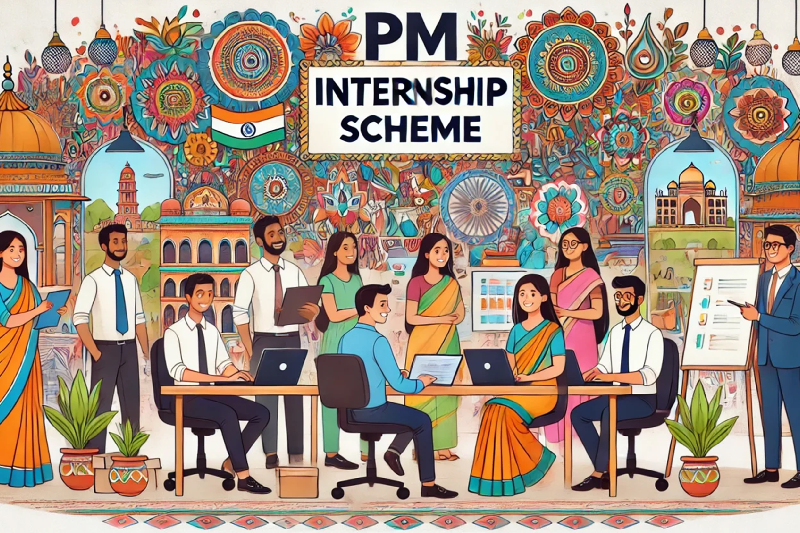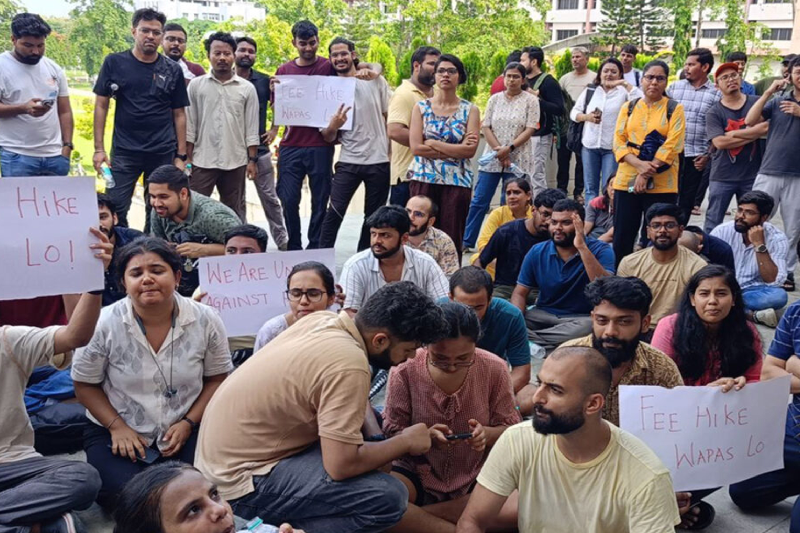
PM Internship Scheme 2025: Only 6% Interns Join Despite 1.53 Lakh Offers – What the Numbers Reveal
Launched to empower youth through hands-on corporate exposure, the Prime Minister Internship Scheme (PMIS) aimed to be a transformative step in India’s skilling ecosystem. However, recent figures reveal a gap between internship offers and actual joinings. Despite over 1.53 lakh internship offers made across two rounds of the PMIS Pilot Project, only 8,700 candidates have joined their internships — just about 6% of total offers made. These figures were shared by Union Finance Minister Nirmala Sitharaman in a written reply to Parliament, sparking questions about the scheme’s real-time impact and execution.
The Vision Behind PMIS
Introduced in the 2024–25 Union Budget, the Prime Minister Internship Scheme set an ambitious goal of providing one crore internship opportunities in five years through collaboration with India’s top 500 companies. The initiative, launched officially on October 3, 2024, aims to bridge the gap between academic learning and industry expectations by offering hands-on experience to young Indians.
The first phase of this pilot project targeted the provision of 1.25 lakh internships within a year. The eligibility criteria were kept wide to include youth from diverse educational backgrounds—Class 10 and 12 graduates, ITI and polytechnic diploma holders, and even non-premier college graduates.
PMIS Round One: A Strong Start but Low Conversions
Round one of the PMIS witnessed significant activity.
- Over 1.27 lakh internships were listed by partner companies.
- 6.21 around 1.81 lakh unique candidates submitted applications.
- Partner companies extended over 82,000 offers to 60,000+ candidates.
- Of these, 28,000+ candidates accepted the offers.
- Yet, only 8,700 candidates eventually joined their internship.
This results in an offer acceptance rate of approximately 33%, but the actual joining rate dropped sharply to 6% of total offers. These figures reflect a mismatch between expectations and offerings, logistical issues, or a lack of follow-through from candidates or companies.
PMIS Round Two: Continued Efforts with Mixed Response
The second round of the pilot project was launched on January 9, 2025, and brought together 327 partner companies offering over 1.18 lakh internship positions across 735 districts in India. This round included both fresh roles and positions carried over from Round One.
Key figures from Round Two (as of July 17, 2025):
- 4.55 lakh applications received from 2.14 lakh candidates.
- Companies made 71,000 internship offers.
- Over 22,500 candidates accepted offers.
- The onboarding process is still in progress, so final joining numbers are yet to be confirmed.
These numbers show a slight improvement in offer acceptance rates, but the final joining rate may again be a concern if it mirrors the trends from Round One.
Why the Low Joining Rate?
While the scheme has received enthusiastic participation from companies and youth alike in terms of applications and offers, the low conversion from offer to joining highlights several underlying issues:
- Mismatch in expectations—Candidates may not find the internships offered suitable in terms of stipend, location, or job role.
- Geographical/logistical challenges – Many applicants may be from rural areas and unable to relocate for internships offered in other districts or states.
- Lack of awareness or follow-through – Some candidates may accept the offer but fail to complete onboarding due to procedural confusion or limited digital access.
- Non-mandatory participation – Some students may opt out after acceptance since these internships are not tied to academic credit or job placement.
Eligibility Criteria: Who Can Apply for PMIS?
The scheme was designed to be inclusive and flexible. The following are eligible:
- Candidates with a Class 10 or 12 qualification.
- ITI certificate holders with matriculation and trade-relevant training.
- Polytechnic diploma holders who have also completed intermediate education, with AICTE-recognised credentials.
- Degree holders from UGC- or AICTE-approved institutions.
- Fresh graduates from non-premier colleges are encouraged to apply.
- Age limit: 18 to 24 years, with relaxation for OBC, SC, and ST categories.
This vast eligibility pool aims to bring maximum participation from youth across education levels and regions.
Digital Registration and Candidate Turnout
The number of youth who have registered and completed their profiles under the pilot scheme is noteworthy:
- Round I: 3.38 lakh completed profiles
- Round II: 3.46 lakh completed profiles
These figures show strong interest in the program, but the challenge is converting interest into meaningful industry exposure.
Final Thoughts: What Lies Ahead for PMIS?
The Prime Minister Internship Scheme is a visionary program with long-term potential to transform India’s youth into a job-ready workforce. However, the success of such a program depends not just on the volume of opportunities but also on candidate-company alignment, ease of access, and support systems that enable young people to transition into real-world work settings.
With the second round still in the onboarding phase, the coming months will be crucial in understanding whether changes in strategy can improve joining rates. Greater collaboration between educational institutions, local governance bodies, and corporates could make this scheme more accessible and impactful.
Conclusion
The numbers from the PMIS pilot indicate a promising initiative that’s still finding its footing. While the low joining rate is a concern, the scheme has laid the groundwork for future refinements. With continued effort and better implementation, PMIS can bridge the gap between education and employment for millions of Indian youth.



